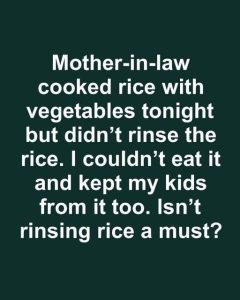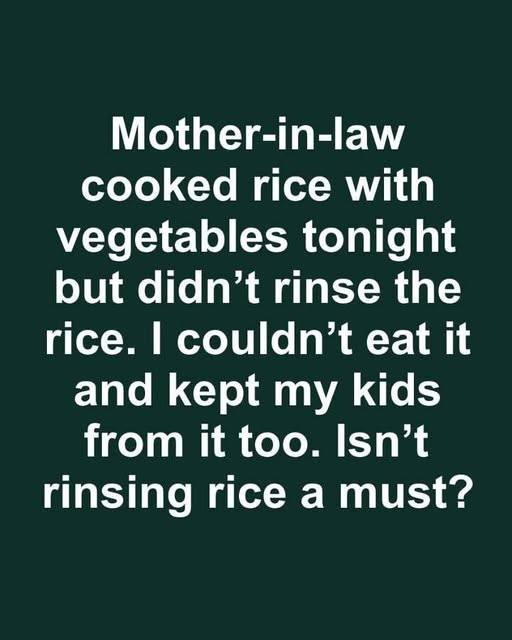A common cooking technique that many people follow worldwide is rinsing rice. It is frequently regarded as an essential step in ensuring that rice is clean and free of excessive starch. This step, according to many, improves cooked rice by giving it a fluffier texture and keeping it from getting too sticky. Many cooks believe that washing rice improves the dish’s flavor and texture in addition to making it cleaner. However, local customs and personal preferences may determine whether this step is actually necessary.

The custom of leaving rice unrinsed
It’s interesting to note that washing rice is not a regular habit in various cultures and households. This may be due to a variety of factors, such as ingrained family customs, convenience, or the perception that rice is already sufficiently clean from contemporary processing methods. There are even many who argue that washing rice could remove crucial nutrients added to it, particularly in fortified rice. Additionally, some rice varieties—like parboiled or enhanced varieties—frequently do not undergo rinsing. This is due to the fact that they are prepared differently and that washing them may actually lessen their nutritious value.
The Science of Rice Rinsing
According to science, washing rice aids in removing the surface starch. When rice cooks, this starch may cause it to become sticky or gummy. Rinsing also aids in removing any dust, tiny particles of dirt, or other pollutants that may have accumulated during transportation and packaging. Rinsing rice reduces the likelihood of the grains adhering to one another. This results in a much superior texture, which is particularly crucial for recipes that call for unique grains, such as fried rice or delicious pilafs.
Health-Related Issues
Although not rinsing rice is unlikely to result in any health issues, the sticky texture may make the meal less pleasurable. Concerns may also exist over residues or contaminants, including dust or certain chemicals, that may be present on the rice. By removing these surface contaminants, rinsing the rice can help ease these concerns. Ensuring that rice is completely rinsed can be a crucial step in the meal preparation process for those with certain dietary requirements or sensitivities.
Cultural Variations in Rice Rinsing
There are significant cultural differences in the custom of rinsing rice. Rinsing rice is a long-standing custom that has been handed down through the centuries in several Asian cuisines. However, some Western cooking techniques may not place as much emphasis on rinsing, particularly when using specific kinds of processed or precooked rice. Every culture has its unique motivations and methods for cooking rice, which are shaped by environmental factors, historical developments, and technological advancements.
Tradition and Health in Balance
Whether or not to rinse rice usually depends on your personal preferences and the type of rice you’re using. While some people prioritize safety and health, others place a higher emphasis on tradition and taste. Finding the ideal balance for you and your loved ones is crucial. Knowing the reasons behind people’s decisions to rinse or not will help you make an informed choice that aligns with your personal culinary objectives and values.
Parental Issues
Ensuring the safety and health of their children’s meals is a primary priority for parents. Parents may become extra cautious due to concerns about possible contaminants in unrinsed rice. Taking precautions like washing rice can provide piece of mind, even if the risk is minimal. Additionally, educating kids about food preparation—including the importance of rinsing rice—can foster positive behaviors and an early understanding of food safety.
Does Rice Really Need to Be Rinsed?
In the end, your personal preferences, the customs you adhere to, and the type of rice you’re cooking will determine whether you need to rinse it. Rinsing may not be strictly necessary for everyone, even if it helps improve texture and get rid of possible contaminants. You may make informed decisions that suit your cooking requirements and health objectives by being aware of the benefits and drawbacks of washing rice. The most essential thing is to enjoy your dinner and the customs that accompany it, regardless of whether you decide to rinse your rice.
